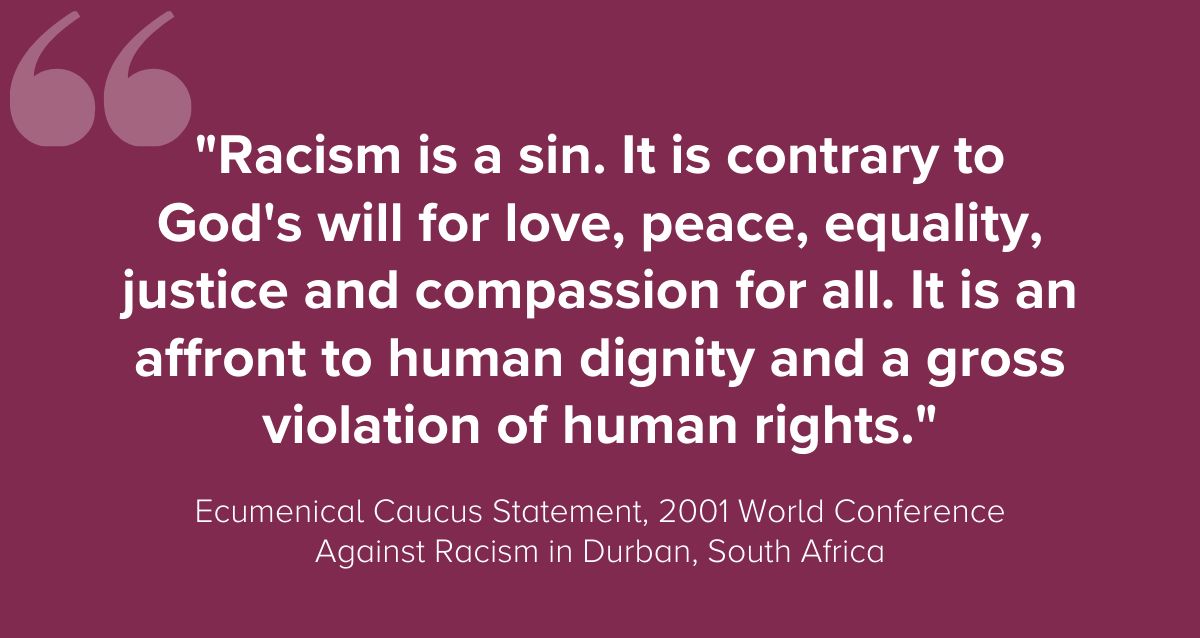United Methodist connection to UN report
Submission prepared by GBCS is cited by Special Rapporteur on racism

The anti-racism work of The United Methodist Church is now included in a report to the U.N. General Assembly.
Tendayi Achiume, a U.N. Special Rapporteur, received a document submitted by the General Board of Church and Society in preparation for her annual report, which was presented this fall to the U.N.
The 13-page submission from The United Methodist Church was prepared by the Rev. Dr. Liberato C. Bautista, Assistant General Secretary for United Nations and International Affairs, General Board of Church and Society.
While the submission shows the denomination’s commitment against racism, it also portrays “how this faith-based religious institution is being confronted by current public discourse on these issues and how it is responding to events in society,” Bautista wrote.
Achiume — the U.N. Special Rapporteur on contemporary forms of racism, racial discrimination, xenophobia and related intolerance — is an independent human rights expert appointed by the United Nations Human Rights Council.
Her report shows the lack of progress since the 20-year-old Durban Declaration and urges all countries to reaffirm their commitments to the transnational fight against racism, noted a UN News story.
Section 2 of Achiume’s report focused on the legacy of the Durban Conference — “A Comprehensive, Intersectional and Concrete Plan of Action for Eradicating Racism, Racial Discrimination, Xenophobia and Related Intolerance.”
Although the Durban Declaration and Programme of Action (DDPA) is not legally binding, “it uniquely develops a concrete action plan for achieving the legally binding commitments that States have undertaken regarding equality and non-discrimination across a range of treaties and as a matter of customary international law,” her report explained.
The DDPA is a resource to help U.N. member states “implement racial equality measures and monitor this implementation in a standardized manner,” the report said.
The contributions of churches is noted under Subsection A, entitled “Recognition of the roots, victims, and manifestations of racism.”
The first part of Point No. 41, stating that “religious institutions have reported how they work toward anti-racism objectives and can actively contribute to reparatory practices,” is footnoted as coming from “submissions by the United Church of Canada and the United Methodist Church–GBCS.”
The second part of that paragraph noted “the acknowledgment by the DDPA that religious leaders should fully participate in anti-racism efforts.”
The United Methodist submission to the Special Rapporteur is supported by official statements from the denomination’s Book of Discipline and Book of Resolutions, both of which contain the United Methodist Social Principles.
Three United Methodist agencies have consultative status with the Economic and Social Council of the United Nations — Church and Society, United Methodist Women and the General Board of Global Ministries.
Those agencies, along with the General Commission on Religion and Race, had registered delegates to the 2001 World Conference Against Racism in Durban, South Africa. The delegates also were part of the Ecumenical Caucus and the NGO Forum in Durban.
“The Durban Conference was a complex but one of the most representative and inclusive conference that gave voice to marginalized and disenfranchised populations and communities in the world,” the submission to the Special Rapporteur stated. “With such diversity came the complexity that varied issues brought to a common table is bound to confront.”
The Ecumenical Caucus Statement was read at the world conference by Archbishop Desmond Tutu.
The fundamental assertion from the text of the Ecumenical Caucus Statement: “Racism is a sin. It is contrary to God’s will for love, peace, equality, justice and compassion for all. It is an affront to human dignity and a gross violation of human rights.”
Bloom is the interim communications director for the General Board of Church and Society.